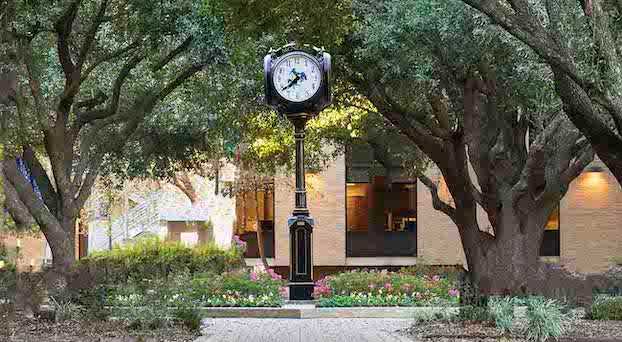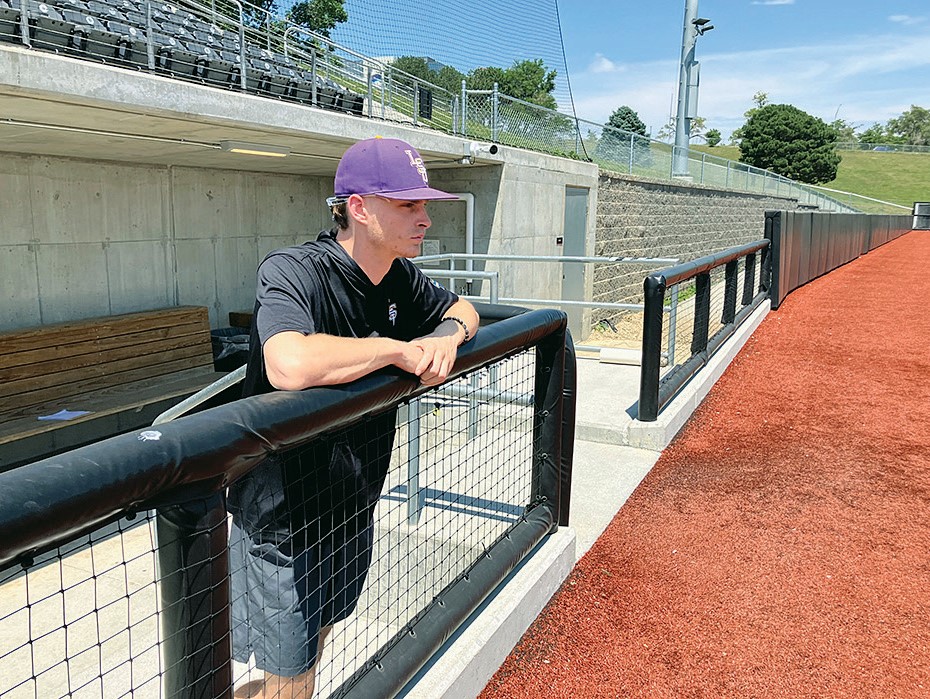Local lawyers discuss benefits, dangers of fracking
Published 2:48 am Wednesday, April 10, 2013
While local political and business leaders prepare for once-in-a-lifetime economic growth in the Lake Area due to the abundance of natural gas that can be converted at area industrial facilities, two lawyers warn that the companies using the technology that harvests the resource need to pay attention to environmental impacts on land and water.
J. Michael Veron and J. Rock Palermo III are partners at Veron, Bice, Palermo and Wilson LLC. Both have participated in lawsuits targeting land contamination.
With the widely successful use of hydraulic fracturing — or fracking — in locations like the Haynesville Shale in north Louisiana and the Bakken formation in North Dakota, oil and gas experts predict that America may become energy efficient within the next decade.
Veron, who used to defend oil companies in the past, believes drilling techniques like fracking are good, if done correctly.
“We know from experience, even the best companies will have accidents no matter what their practices and procedures are. As long as they spend money and produce with no damages, we are all for it,” Veron said.
His legal career has been intertwined with the oil and gas industry from both the plaintiff and defendant perspectives. In court battles Veron has learned that environmental concerns and corporate interests do not always coincide.
Fracking — the use of high-pressure water, sand or chemical solutions to fracture underground sediment to release oil and natural gas — is viewed by Veron as a drilling technique, that, even though it has led to financial windfalls, needs to be researched more.
He believes it is no different from other types of drilling methods used in Louisiana since the first oil well was successfully drilled in Jennings back in 1901.
“I anticipate a lot of problems with the Haynesville Shale. Hydrofracturing is just another method of exploration that can contaminate. It is not a bad technology. But it is like brain surgery which is good if done right. And in the oil and gas business, there are a lot of companies that are good at drilling, and there are too many that aren’t good at it at all,” he said. “Those are the ones who are lured into the business by easy money and act hastily without training.”
Opponents of fracking contend that the process can lead to groundwater contamination and air pollution; can cause gas and chemicals to rise to ground level; can cause problems due to waste created by the process; and could lead to health problems.
Palermo said the public needs to be protected.
“We don’t know enough yet. The process is at its infancy regarding its use. Some countries have outlawed it. We can trust, but we need to verify,’’ Veron said.
Area business observers and potential employees should be excited about the work that is being driven by natural gas finds in the South and Southwest, Palermo said.
Both attorneys are starting to talk to more people, especially in north Louisiana, about the problems that could have been caused by hydrofracturing on property where drilling has taken place.
Veron is concerned about the environment, and gets passionate when talking about the way corporations influence state and federal government. He does not fit the stereotype of an environmentalist and admits to being a Republican.
“I am an environmental advocate, but I’m not Greenpeace. I believe in the free-enterprise system. But we have to have responsibility. I believe in letting the market work, but if you damage somebody, you have to pay. Robert Fulghum wrote in his book ‘All I Really Need to Know I learned in Kindergarten’ to clean up your own mess.”
Veron and Palermo said hydrofracturing is the ‘‘sexy’’ trend in the oil and gas industry right now. They both believe more time is needed to understand the long-term effects the process will have on the environment.
From their legal experiences, though, they know people besides state and local government representatives have to keep watch over the executives and workers who operate in the oil and gas world.
In the winter of 2011, Veron had a legal paper published in the Tulane Environmental Law Journal that analyzed state regulatory issues related to oilfield contamination.
In it, he cited a statement from a state Department of Environmental Quality study: “Oilfield operations are a leading cause of groundwater contamination in Louisiana. When an oil well flows, four things come to the surface: (1) oil, (2) gas, (3) gas liquids (often referred to as ‘gasoline’), and (4) produced water (often referred to as ‘brine’). These four components of the well stream must be separated at the surface so that the first three can be sold for profit and the brine can be disposed of.”
From Veron’s perspective, the brine itself is worrisome since it is filled with salt, which is known to have adverse effects on the environment when not disposed of properly.
“All we are saying is that these companies need to be responsible. Stand up and be accountable,” he said.
(mgnonline.com)
(EPA / Special to the American Press)





